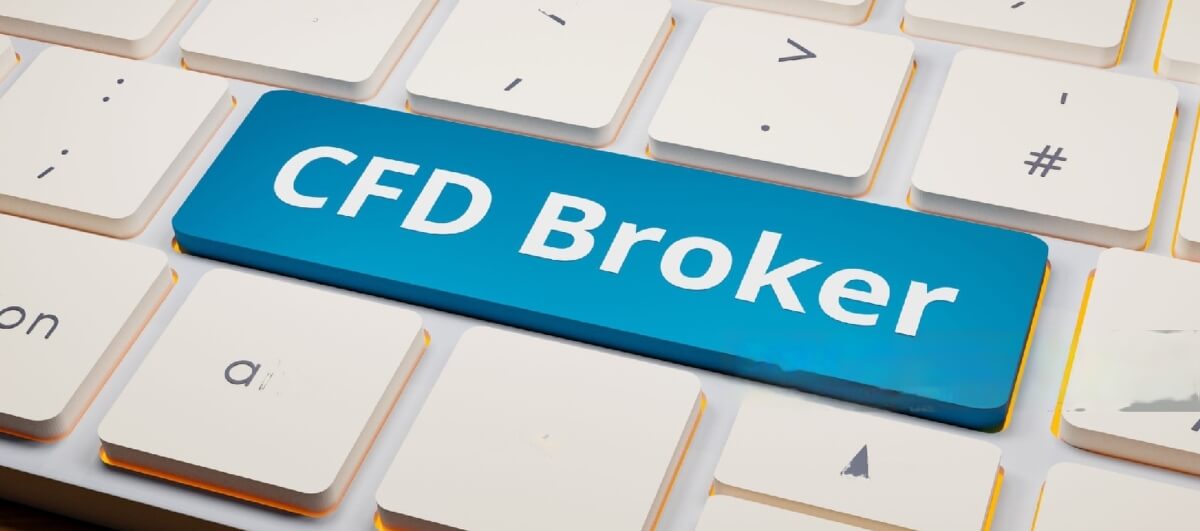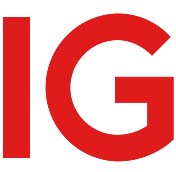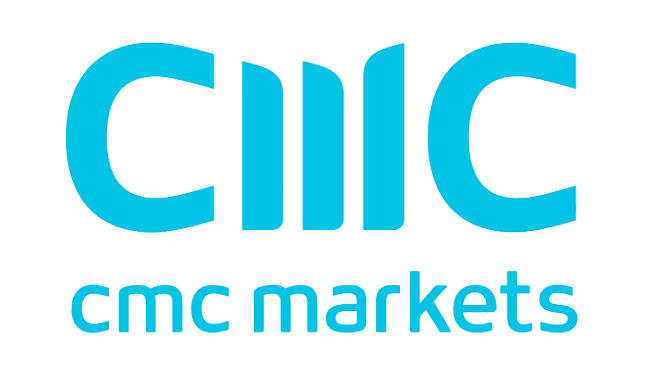
CFD, which stands for Contracts for Difference, might sound complex, but it’s actually a powerful way to trade various assets. CFD brokers play a crucial role in this realm, and we’re about to uncover why finding the best one matters.
Choosing the right CFD broker can make all the difference in your trading journey. It’s not just about convenience; it’s about trust, security, and the potential for higher returns. We’ll find out why your choice of a CFD broker is a decision you don’t want to take lightly.
What Are CFD Brokers?
Let’s start with the basics. CFDs, or Contracts for Difference, are financial derivatives that allow you to speculate on the price movements of various assets, like stocks, commodities, or cryptocurrencies, without actually owning them. Think of it as betting on whether an asset’s price will go up or down. CFDs are powerful tools that let you profit from both rising and falling markets.
Now, here’s where CFD brokers come into play. CFD brokers are the bridge between you and the financial markets. They provide the platforms and tools you need to trade CFDs effectively. They facilitate your trades, offer leverage, and ensure you have access to real-time market data. In essence, they’re your partners in the world of CFD trading.
CFDs vs. Traditional Trading
So, what sets CFD trading apart from traditional methods? Well, in traditional trading, you buy and own the actual asset, like a stock or a commodity. But with CFDs, you’re essentially making a contract with your broker to exchange the price difference of the asset. This means you can profit from price movements without the complexities of ownership. It’s a more flexible and cost-effective way to trade, but it does come with its own set of risks.
How CFD Brokers Work
Have you ever wondered how those who trade Contracts for Difference (CFDs) manage to navigate the financial markets? It’s an intriguing world, and here’s a peek into how CFD brokers make it all happen.
Opening an Account with a CFD Broker
First things first – to get into CFD trading, you’ll need to open an account with a CFD broker. It’s a bit like setting up a bank account but tailored to the world of trading. You’ll provide some personal information, and often, you’ll need to verify your identity to comply with financial regulations. Once that’s done, you’re in.
Accessing a Range of Financial Instruments
Now comes the exciting part. When you’re with a CFD broker, you’re not just limited to one type of financial instrument. It’s like having access to a vast financial buffet. You can trade CFDs on stocks, commodities, indices, currencies, and more. This diversity allows traders to spread their risk and explore various markets.
Leveraged Trading and Margin
CFD trading often involves what’s known as leveraged trading. This is where things get interesting (and potentially risky). With leverage, you can control a more substantial position than your initial deposit would typically allow. For instance, with a 10:1 leverage, you can trade $10 for every $1 you have in your account.
But here’s the catch: while leverage can amplify profits, it can also magnify losses. So, it’s crucial to tread carefully and understand the risks involved. Brokers may also require a margin, a portion of your funds that acts as collateral to cover potential losses.
Best CFD Brokers ➤ Top 5
When it comes to choosing the best CFD brokers, it’s like finding a reliable compass for your financial journey. There are a plethora of options out there, but let’s delve into what makes the top five CFD brokers in our list stand out.
1# IG Group (IG)

IG Group was founded in 1974, making it one of the oldest online trading platforms.
Why They’re Among the Best: IG Group has earned its reputation through decades of experience. As one of the pioneers in online trading, they offer a comprehensive platform with a vast selection of CFDs, including forex, indices, commodities, and cryptocurrencies. Their strong regulatory compliance adds a layer of trust for traders.
- Regulation: IG was regulated by multiple reputable authorities, including the FCA in the UK and ASIC in Australia.
- Asset Selection: They offered a wide range of CFDs on various assets, including forex, stocks, indices, and cryptocurrencies.
- Trading Platforms: IG’s trading platform was user-friendly and included advanced charting tools.
2# Plus500

Plus500 was founded in 2008 and it’s a popular choice, particularly among beginners
Why They’re Among the Best: Plus500 stands out for its simplicity and user-friendly interface, making it particularly attractive to novice traders. They often do not charge commissions, and their transparent fee structure is appealing. The broker is well-regulated and offers CFDs on various assets, including stocks, indices, and cryptocurrencies.
- Simplicity: Plus500 was known for its user-friendly platform, making it a good choice for beginners.
- Regulation: The broker was regulated by multiple authorities, including the FCA, ASIC, and CySEC.
- No Commission: They typically didn’t charge commissions, making their fee structure transparent.
3# eToro

Established in 2007, eToro is a prominent choice for both social traders and traditional investors.
Why They’re Among the Best: eToro revolutionized CFD trading with its social trading platform, allowing users to follow and copy experienced traders. This feature has attracted a large and active community of traders. Their diverse range of CFDs, regulatory compliance, and user-friendly interface make them a top choice for both beginners and experienced traders.
- Social Trading: eToro was famous for its social trading features, allowing users to follow and copy the trades of experienced traders.
- Wide Asset Selection: They offered a diverse range of CFDs on stocks, cryptocurrencies, forex, and more.
- Regulation: eToro was regulated by CySEC, FCA, and ASIC.
4# CMC Markets

CMC Markets, which was founded back in 1989 is a highly respected CFD broker.
Why They’re Among the Best: With a history spanning several decades, CMC Markets has a strong presence in the CFD trading world. They offer a wealth of educational resources and advanced trading tools. This broker is known for its strong regulatory compliance, and they provide a secure and reliable trading environment.
- Education: CMC Markets provided a wealth of educational resources, including webinars and tutorials.
- Advanced Tools: Their platform offered advanced charting and analysis tools.
- Regulation: CMC Markets was regulated by the FCA and ASIC.
5# AvaTrade

AvaTrade was founded in 2006.
Why They’re Among the Best: AvaTrade is known for its strong customer support and multiple regulatory licenses. They provide a variety of trading platforms to suit different preferences and a broad range of CFDs, making them a versatile choice for traders of all levels. This broker offers a range of educational resources to help traders improve their skills.
- Customer Support: AvaTrade was known for its excellent customer support.
- Regulation: They were regulated by multiple authorities, including the Central Bank of Ireland and ASIC.
- Range of Trading Platforms: AvaTrade offers various trading platforms to suit different trader preferences.
The best CFD broker for you may not be the same as for someone else. It’s about finding the perfect match for your trading style, goals, and preferences.
But what should you consider when choosing a CFD broker?
How to Choose the Best CFD Brokers
Choosing the right CFD broker can make a world of difference in your trading journey. It’s not just about finding a broker; it’s about finding the best fit for your unique trading needs. Let’s dive into how you can make the right choice:
Research and Due Diligence
- Regulatory Compliance and Licensing: Your first step should always be to check if the broker is regulated by a reputable authority. This ensures they adhere to strict financial and ethical standards, adding an extra layer of security to your trading experience.
- Reputation and Reliability: Look for brokers with a solid track record. Read reviews, ask fellow traders for recommendations, and check if they’ve had any major issues in the past. Reliability is crucial; you want a broker who executes trades promptly and doesn’t leave you hanging during crucial market movements.
- Asset Selection and Market Coverage: Assess the variety of assets and markets the broker offers. Whether you’re into stocks, forex, commodities, or cryptocurrencies, make sure they have a wide range of options to match your trading interests.
- Trading Platforms and Tools: The trading platform is your cockpit. Ensure it’s user-friendly, responsive, and provides the necessary analysis tools. Some brokers even offer demo accounts so you can test drive their platform before committing.
Trading Costs and Fees
- Spreads, Commissions, and Overnight Charges: Understand the fee structure. Brokers often make money through spreads (the difference between buying and selling prices), commissions, and overnight financing charges. Compare these across different brokers to find the most cost-effective option for your trading style.
Trading Conditions and Leverage
Leverage can amplify both profits and losses, so be cautious. Check the leverage ratios the broker offers and make sure they align with your risk tolerance and trading strategy.
Risk Management Features
A good CFD broker should provide risk management tools like stop-loss and take-profit orders. These can help you limit potential losses and secure profits automatically, even if you’re not monitoring your trades 24/7.
Customer Support and Education
Trading can be complex, especially for newcomers. A broker with excellent customer support can be a lifesaver when you have questions or run into issues. Look for brokers who offer educational resources, webinars, and tutorials to help you improve your trading skills.
User Reviews and Recommendations
Don’t underestimate the power of user feedback. Reviews and recommendations from fellow traders can provide valuable insights into a broker’s strengths and weaknesses. However, keep in mind that individual experiences can vary, so consider the overall sentiment.
Tips for Successful CFD Trading
While CFD trading can be exciting, it can also be complex for beginners. Here are some valuable tips, straight from the heart, to help you trade it successfully.
Risk Management Strategies
First and foremost, let’s talk about risk, the heartbeat of trading. Don’t go all-in on a single trade. That’s like putting all your chips on one bet at the roulette table. Instead, spread your risk. Use stop-loss orders. These are like your safety net. They’ll automatically sell your CFD if it starts losing too much. It’s like having a lifeguard when you’re swimming in turbulent waters.
Developing a Trading Plan
Imagine setting out on a road trip without a map or GPS. Trading without a plan is pretty much the same. Your plan should be your roadmap. It should define your goals, risk tolerance, and strategies. But remember, a plan is no good if you don’t stick to it. Discipline is your best travel companion.
Keeping Abreast of Market News and Analysis
Trading is like a chess game. You need to know your moves and anticipate your opponent’s. Stay updated with market news and analysis. Follow financial news outlets, read reports, and understand the factors influencing your CFD assets. It’s like studying the weather forecast before a camping trip. Knowing what’s coming helps you pack accordingly.
Practicing with Demo Accounts
Before you take your trading journey on the real road, it’s smart to practice first. Most CFD brokers offer demo accounts. Think of these as your practice runs. You won’t make or lose real money, but you’ll get a feel for the market. It’s like driving lessons before hitting the highway.
Monitoring and Evaluating Your CFD Broker
Your CFD broker is your partner in this adventure. You wouldn’t embark on a trek with just anyone, right? So, carefully evaluate your broker. Look at their fees, customer service, and most importantly, their reputation. Read reviews, talk to other traders. This is your journey, and you want a reliable companion.
Remember, CFD trading can be a bumpy ride. There will be ups and downs. But with the right strategies and a cautious approach, you can navigate these financial waters with confidence.
Happy trading! 🚀📈
